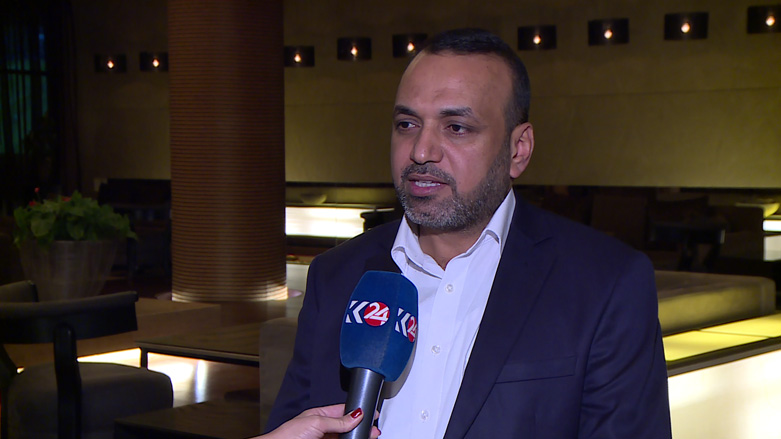Coalitions close to Iran arrive in Kurdistan to discuss next Iraqi government

ERBIL (Kurdistan 24) – Separate delegations from two major Iraqi political coalitions with close ties to Iran arrived in Erbil on Friday night to discuss the formation of the new Iraqi government with Kurdish political parties.
Lawmaker Ahmed al-Assadi, leading the group from Baghdad representing the Hashd al-Shaabi’s (PMF) Fatih coalition, told Kurdistan 24 on Friday that they had no pre-conditions for talks.
“The purpose of our visit is to meet with parties who won the election in the Kurdistan Region on the project that we have proposed,” said the former spokesperson of the Iranian-backed Shia militias.
Though the results of the May 12 election are in dispute and a partial manual recount of votes is underway, leading parties appear to be conducting post-election deal-making, including the creation of the next cabinet, much as they would be expected to had the results been agreed upon.
“Our message to Kurdistan parties for the new Iraqi government is that we are the people of the same country. Iraq suffers from many problems," said Assadi. "Therefore, we have to quickly form the new cabinet to serve all of Iraq."
The Fatih (Conquest) coalition was formed by Shia militia commander Hadi al-Amiri in 2018, splitting from the State of Law Coalition led by former Prime Minister Nouri al-Maliki.
In initial results announced by Iraq's electoral commission, Fatih secured enough seats to become the second largest bloc in the Baghdad parliament, behind the top vote-getter, cleric Muqtada al-Sadr's Sairoon coalition.
“There might be differences between us, but we should resolve all issues based on the constitution [of Iraq]," the lawmaker continued. "The constitution should be the judge for addressing all the problems. The new Iraqi government should be formed based on national principles."
“We will welcome all the parties the same. We have no red lines for winning parties. We have no conditions and will not accept conditions from anyone.”
Also on Friday, a delegation of Maliki's State of Law Coalition arrived in the Kurdistan Region to meet with Kurdish parties for similarly stated reasons.
Some Kurdish lawmakers have said they believe the new Iraqi cabinet could be formed by the end of 2018, but others have contended that it could be well into the next year before the nation has a functioning government.
Editing by John J. Catherine
